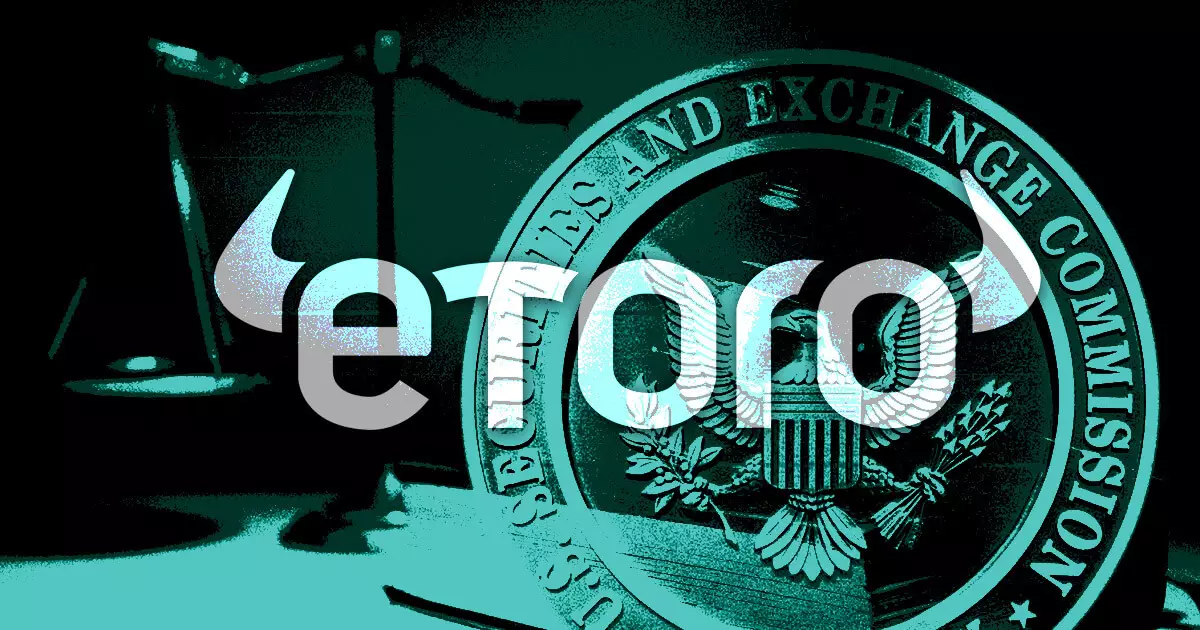In a significant development, online trading platform eToro has announced it will suspend trading in most digital assets after reaching a $1.5 million settlement with the U.S. Securities and Exchange Commission (SEC). This decision, revealed in a statement issued on September 12, comes on the heels of an investigation that found eToro allowed U.S. clients to trade cryptocurrency deemed as securities without adhering to essential federal registration processes. The implications of this agreement highlight not only eToro’s ongoing battle with regulatory compliance but also the broader challenges faced by cryptocurrency exchanges operating in the U.S.
The SEC’s investigation outlines a considerable oversight on eToro’s part, indicating a persistent lack of vigilance regarding the legal status of the assets it was offering. Though eToro has neither admitted nor denied the allegations made by the SEC, the company has opted to limit its trading options to a sparse selection of prominent cryptocurrencies—Bitcoin, Bitcoin Cash, and Ethereum—in hopes of regaining regulatory credibility.
Implications for the Future of Crypto Trading
Gurbir S. Grewal, the SEC’s Director of Enforcement, voiced that the settlement is a clear manifestation of eToro’s commitment to align itself with established regulations while still maintaining its U.S. operations. He articulated that the firm’s compliance with federal laws is not merely an isolated incident but part of a broader movement towards enhancing investor protection across the ever-evolving landscape of cryptocurrency. By simplifying its offerings to only popular tokens, eToro seeks to present a less risky environment for investors while navigating the regulatory maze that has become commonplace for many crypto firms.
This systemic issue of compliance is not confined to eToro alone; it is part of an extensive regulatory crackdown affecting various crypto entities. Other notable platforms like Binance, Kraken, and Coinbase are facing similar scrutiny from the SEC, which has made clear its intention to enforce compliance rigorously. The potential for further legal actions against intermediaries like Robinhood and OpenSea further emphasizes the urgent need for clarity in regulatory frameworks governing the crypto market.
Future Prospects and Strategic Directions
Commenting on the settlement, Yoni Assia, co-founder and CEO of eToro, expressed optimism about venturing forward with innovative products despite the present constraints. He reiterated the importance of compliance and collaborative efforts with global regulators as essential components for facilitating growth and stability in the sector. Assia’s remarks suggest a cautious yet forward-thinking approach as the company prepares for a more stringent regulatory environment in the U.S., which he believes will soon parallel the clarity already present in Europe and the UK.
As the timeline approaches for users to either close their crypto positions or transfer their assets to wallets by March 11, 2025, the urgency for eToro customers is palpable. After this date, any retained crypto positions outside of the approved digital assets will face liquidation.
EToro’s recent strategic pivot underscores the necessity for all cryptocurrency firms to prioritize compliance amid an increasingly rigorous regulatory framework. The company’s move to streamline its offerings is not just a defensive tactic but also a potential blueprint for other firms grappling with similar issues. In a world where the future of digital assets hangs in the balance, eToro’s actions will be closely monitored as a bellwether for the broader cryptocurrency market’s evolution.


Leave a Reply